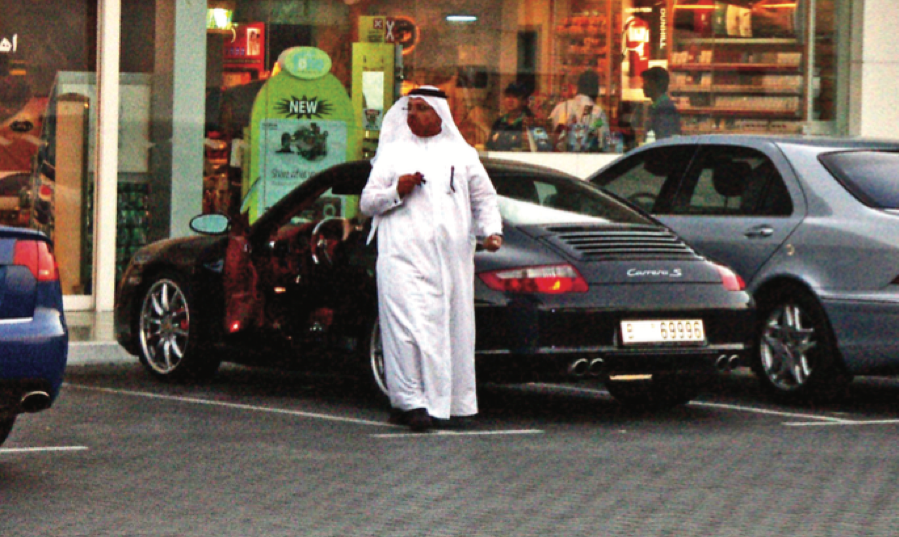Who is really profiting from Algeria’s oil revenues? This question is fueling a heated public debate in the country. Former political officials, economists, and even political parties are questioning the state’s management of the country’s exchange reserves, estimated in June at $126 billion thanks to increases in oil revenues. “Why are exchange reserves being invested in banks in the US?” some wonder, and “Who is really managing these reserves?” Many are nagged by suspicions that the money deposited in American banks might not be sheltered from the mortgage and financial crises in the US.
Smail Goumeziane, former Minister of the Economy, recently added fuel to the fire. “Politically, is it just to finance the Americans’ military activities?” he asked, “And economically, is it fair to finance the budget of a country that subsidizes agribusiness giants in order to artificially dope their competitiveness, so that they have an unfair advantage over the numerous small-scale farmers in the third world? Socially, is it just to contribute to the financing of American technological research when this sector suffers from serious organizational setbacks and lack of resources in Algeria?”
Up to 70% of Algeria’s exchange reserves are currently invested in sovereign deeds or treasury bonds abroad. These investments generate a surprisingly low interest rate of 2%.
In most regions, revenues generated by natural resources are assigned to regulate exchange rates, especially in oil-producing countries. With the price of oil surpassing all former thresholds, and Algeria’s exchange reserves swelling, public debates over the management and investment of exchange reserves have become more urgent than ever. In seven years, Algeria has seen oil revenues rise from $10 billion in 2000, to $80 billion in 2006, to nearly $100 billion at the end of 2007, to close to $130 billion halfway through 2008. The state has centralized more than $42 billion in a special Revenue Regulation Fund (Fonds de Regulation des Recettes, or FRR). But Algerians wonder why such sums of money are being invested in US banks for interest rates not exceeding 3%?
Goumeziane has stated that the state only uses the profits earned on oil and natural gas for purely structural reforms. But many Algerians see no productivity in this domain, and grow increasingly frustrated with the lack of visible benefits, while Algerian youth, 75% of the population, face rising unemployment and bleak prospects.
America’s mortgage and financial crisis has not fazed the Bank of Algeria (BA), which recently dismissed the risk an international crisis could pose to the portion of exchange reserves invested in US banks. The BA has stated that the risk on this part of the exchange reserves “is a good guarantee for the creation of currency at the internal level,” adding, with little elaboration, that the Bank is investing reserves “in conformity with international norms,” in order to “be able to intervene at any moment on the exchange markets.” It further elaborated that Algeria will continue to reconstitute its exchange reserves so as to face monetary crises, and guarantee the level of real exchange of the national currency.
Another dark cloud menacing Algeria’s ‘petrodollars’ relates to the currency of their investments. On this point, the Bank of Algeria seems to proceed prudently, at least according to the declarations of its Governor Laksasi, who said that “a portion of the reserves in dollars was converted, at an opportune moment, into euros.”
M. Lamiri, an Algerian economist and international consultant, said that oil revenues invested in American treasury bonds are safe from the crises flogging the global economy. “These investments in state bonds are insured by the US. Algerian investments are not in danger,” he predicted. However, he reproached the low interest rate that applies to these colossal sums. “It earns a maximum of 4% annually while it could earn up to 12.7% a year in a country like Norway,” he said.
Are there better prospects for investing Algeria’s swelling exchange reserves? The state has shot down the notion that a sovereign fund could potentially yield more profits on oil money and President Abdelaziz Bouteflika stamped a categorical ‘no’ onto the subject. “Some have suggested that we embark on the adventure of a sovereign fund in order to secure a higher return on our exchange reserves abroad. I feel that the country continues to have an enormous need for capital, for the development of the national economy,” Bouteflika expressed in September.
The country’s premier promised that new construction projects will be launched as part of a new program for developing the national economy, starting in 2009. These projects will draw on the wealth created by the investment of exchange reserves.
But Algerians wondering which financial policies will ensure the investment of exchange reserves are profit-making. They hope to find an answer fast, before they are stuck with a far more uncomfortable question: Where did all the oil money go?






